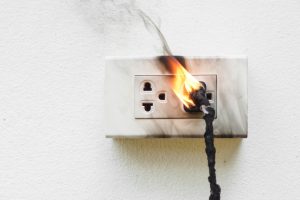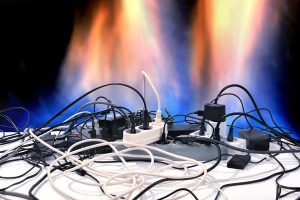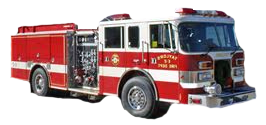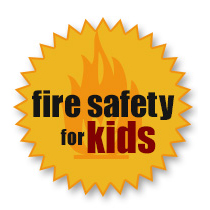Fire Safety – Home Electrical
 Most of us enjoy the convenience of electricity in our daily lives but we often ignore the potential for fire-related hazards. According to recent NFPA statistics, an estimated average of nearly 48,000 home structure fires caused by electrical problems were reported to U.S. fire departments. These fires resulted in 455 civilian deaths, more than 1,500 civilian injuries, and $1.5 billion in property damage. Roughly half of these involved electrical distribution or lighting equipment such as wiring, lighting, and cords or plugs.
Most of us enjoy the convenience of electricity in our daily lives but we often ignore the potential for fire-related hazards. According to recent NFPA statistics, an estimated average of nearly 48,000 home structure fires caused by electrical problems were reported to U.S. fire departments. These fires resulted in 455 civilian deaths, more than 1,500 civilian injuries, and $1.5 billion in property damage. Roughly half of these involved electrical distribution or lighting equipment such as wiring, lighting, and cords or plugs.
Any equipment or appliance that uses electricity such as dryers, computers, space heaters, televisions, or fans has the potential to be a part of an electrical fire. Several fires each year are due to overloading outlets, power strips, and multi-port adapters.

Many people think all power strips are surge protectors and they will prevent overloading, but this is not true. A power strip or relocatable power taps are basically extension cords with multiple areas to plugin. They frequently get overloaded especially when people plug portable heaters into them. A portable heater should only be plugged directly into an outlet.
Here are some steps to take to protect your family and home:
- Have all electrical work performed by a qualified electrician
- Follow manufacturer’s instructions when plugging any appliance or equipment into a wall outlet
- Use extension cords wisely – Roughly 3,300 home fires originate in extension cords each year, killing 50 people and injuring 270 more. Extension cords can overheat and cause fires when used improperly.
- Do not overload electrical circuits. Only plugin one heat-producing appliance (such as a toaster or coffee pot into an outlet at a time
- Unplug any items that aren’t in use
- If you have young children in the home use tamper-resistant outlets or protective outlet covers so that children can’t insert objects into the wall outlets
- Avoid putting cords under rugs, carpets or pet beds where they can be damaged or pinched
- Use light bulbs that match the recommended wattage listed on the lamp or fixture
- Arc fault circuit interrupters (AFCIs) are a kind of circuit breaker that shuts off electricity when a dangerous condition occurs. Consider having them installed in your home by a qualified electrician.
- Check your electrical cords often and replace any that are cracked, damaged or loose.
- Never remove the third prong from equipment or appliances.
GFCI Virtual Demonstration: Ground Fault Circuit Interrupters
Electrical Safety Public Service Announcement: Is your home up to the latest National Electrical Code?
Please contact us if you have any questions about fire safety.
Resources:
National Fire Protection Association
ESFi




